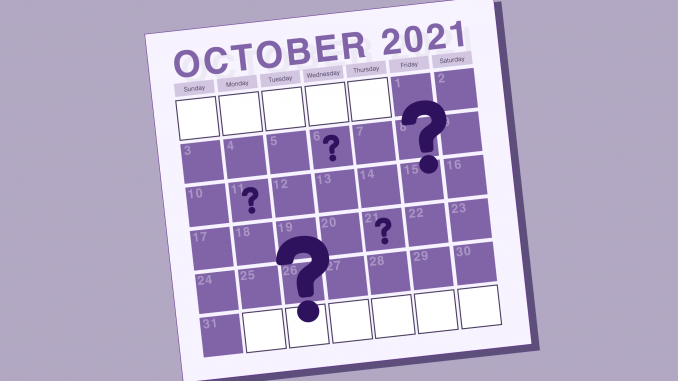
When I first heard of Wellness Days in Spring 2020, I was so relieved. I finally thought Temple University cared about students’ well-being. The two days off were no excuse for canceling spring break, but it seemed as if the university had a plan in place to give students time off.
Now that Wellness Days are gone, Temple has shown a lack of care regarding the mental health of its student body.
To allow students to take time off from school and relax with their peers, Temple must bring back Wellness Days and establish guidelines for professors to keep students from being forced to do assigned work on their days off.
When the university announced its plan to implement Wellness Days, former Provost JoAnne Epps wrote students should use the time to relieve stress during the semester amid the COVID-19 pandemic.
Although students will have a spring break this year, it doesn’t mean they shouldn’t have two Wellness Days to rest in future semesters to prevent them from going through long periods of extreme fatigue. This exhaustion can cause college students to feel burnt out while waiting for winter or spring break.
Many freshmen students entering college have never experienced a semester of nearly nonstop course activity all the way until Thanksgiving break, especially during a pandemic. Although this may be normal, it’s time for Temple to implement days off that alleviate concerns about mental health, well-being and stress.
Last year’s Wellness Days were not effective in promoting mental well-being because of the amount of work due in the days following the break.
When students hear about Wellness Days, many associate it with an extra homework day. School is stressful, and students ultimately spent their days off on their laptops, said Julia Picciotti, a senior marketing major.
“On Wellness Days I would want to do my homework and catch up, which is frustrating because I’d rather focus on myself,” Picciotti said.
In order to prevent this from happening and make future Wellness Days more beneficial, Temple must establish restrictions that prevent professors from assigning work due in the days following the break.
Eighty-three percent of students in the United States claimed their mental health negatively affected their ability to complete coursework, and two-thirds admitted to battling with loneliness and isolation, according to a 2020 study by Boston University.
Students with underlying health conditions are challenged with balancing stress and maintaining their physical well-being. About one in four adolescentes have a chronic health condition like asthma or diabetes, according to the Centers for Disease Control and Prevention.
High levels of stress can often worsen various symptoms, said Michelle Yeboah, a senior health professions major whose illness makes her adamant about her desire to have Wellness Days.
“When they get stressed out they get flare-ups, so their joints tighten up, they’re like paralyzed,” Yeboah said.
Everyone has different methods to relieve stress, like praying or running. If Temple provided options like Wellness Days to take the time to do this, it could help students unwind, Yeboah added.
Entering college is a stressful and tiring time, said Julia Chein, a freshman psychology major.
“I skipped my class today because I was really tired,” Chein said. “Playing volleyball helps me. It’s a really great way for me to blow off steam, or exercising. I like to go to the gym to, like, run or lift.”
Students deserve a way to spend their time away from their computer screen doing work by doing activities outside that de-stress their minds.
Students need to know that their university understands their problems, and Temple can do this by bringing back Wellness Days.
NOTE: A previous version of this story named an illness that Michelle Yeboah suffered from. That illness has been removed in cooperation with her in consideration of her mental health.


Be the first to comment